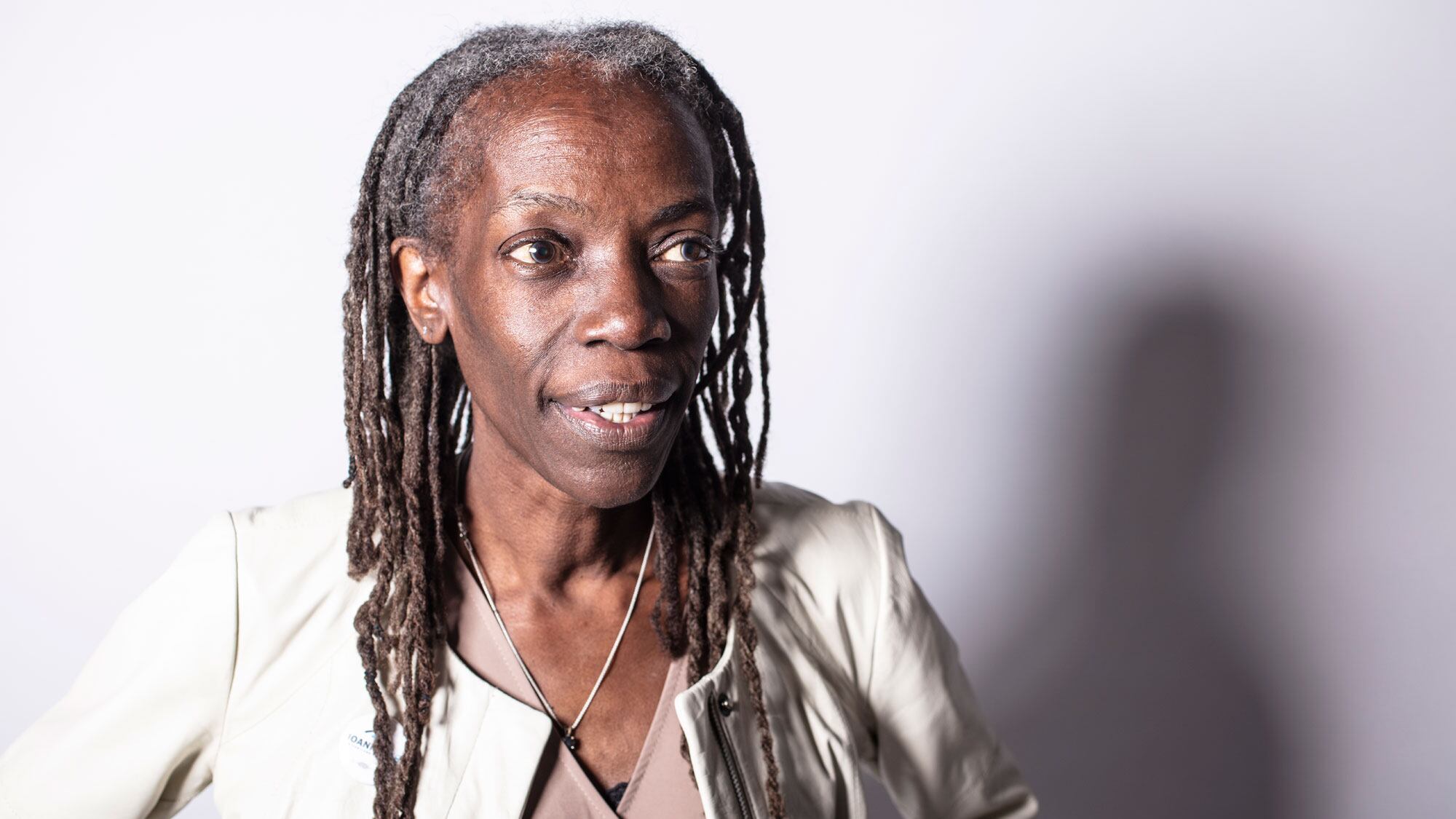A black woman will be elected to City Council for the first time in Portland's history. It's going to take until November to decide who.
In the hotly contested primary to replace departing Portland City Commissioner Dan Saltzman, Multnomah County Commissioner Loretta Smith started the race as the front-runner.
But it's former state Rep. Jo Ann Hardesty stacking up nearly 40 percent of the vote in early returns.
That's nearly double Smith's tally at 23 percent of the vote.
If those results hold, those two candidates will head to a runoff in November.
At Hardesty's campaign party at Solae's Lounge, a small jazz club on Northeast Alberta Street, people slowly trickled while Hardesty hid from the crowd in a private room, coming out only to smoke a cigarette on the back patio.
As she snuck away again to prepare for her speech, she shook hands with some of her supporters and left them with a hopeful prediction: "We're about to party!"
When the first results came in at 8 pm, a man in the club shouted: "Right now, Jo Ann is in the lead!"
The crowd hollered and clapped. The jazz band urged everyone to give a cheer for the candidate and struck up "Let the Good Times Roll."
Shortly after 8:30, Hardesty gave a victory speech.
"There were a whole lot of naysayers in the beginning," Hardesty said. "They said 'But Jo Ann, you ask too many direct questions, that's not Portland polite.' But I have had the privilege to work with the most incredible people on this journey. We had a vision of what Portland could be.
"Tonight we party," she concluded, "then we sleep for two weeks, and then we take this seat. We take it."

Hardesty was in great spirits after her win, dancing and hugging her supporters. She quickly snagged a frosty drink in a martini glass.
"I'm not worried about Loretta. Loretta and I are really different," Hardesty told WW. "I think the only thing we have in common is we're both women and we're African American, but other than that we're pretty different."
At a swanky downtown hotel, two dozen Smith supporters were mostly quiet as they waited for their candidate to appear.
Joined on a stage by her son and granddaughter, Smith put a optimistic spin on the results and gave a stirring speech.
"We knew we had a hard race to run, and we ran that race," Smith said.
She led the crowd in chants of "rise up" and referred to her first run for Multnomah County commissioner when, like tonight, she placed second in the primary, but went on to win in November.
"We've been here before, in 2010, down 18 points," said Smith. "This journey we've been on can be summed up in three words: Never give up."

In an open seat, Smith assumed the role of incumbent as the candidate holding highest elected office and as the top fundraiser. She also won significant endorsements from private-sector unions and the Portland Business Alliance.
But all key newspaper endorsements (including WW) went to other candidates and public-sector unions endorsed other candidates or stayed out of the race.
In part, that's because of questions about accusations that Smith bullied her employees at the county and misspent her budget. During the election, she faced a fine for an elections law violation and a lawsuit over whether she should have resigned her post to run.
It was hard to predict a race where voter turnout has hovered below 30 percent.
The election had been framed as a potentially historic race. Just eight women have served on Portland City Council—two of them are currently holding office. And none has been a woman of color.
Smith faced Hardesty and David Douglas School board member Andrea Valderrama, who is Latina. Also in the race was the architect Stuart Emmons, who finished a close third two years ago in the City Council primary, losing to now City Commissioner Chloe Eudaly and former City Commissioner Steve Novick.
Valderrama, a policy adviser to Mayor Ted Wheeler, conceded after early results showed she had just 10.7 percent of votes.
On the back patio of Alberta Street Pub, a dozen or so supporters, including former City Commissioner Steve Novick and House Speaker Tina Kotek, huddled with phones in hand watching the results come in.
Five minutes after 8 pm, it was clear Valderrama would not get enough votes to outmatch opponents.
A crestfallen Valderrama addressed the crowd. "While the outcome is not what we expected," she said, "I'm very proud of the work we accomplished. There is still work ahead to do, and still causes I will continue to champion."
Emmons had 10.8 percent of the vote.
Neighborhood association president Felicia Williams was in third with 13.2 percent of the vote.
Local elected officials largely stayed out of the race, with two notable exceptions: City Commissioner Chloe Eudaly, who endorsed Hardesty, and state Rep. Barbara Smith-Warner (D-Portland), who endorsed Smith.
Meanwhile, Saltzman campaigned for a renewal of the Children's Levy, which was cruising to victory with 80 percent support in early returns. City Commissioner Nick Fish has been sent back to City Council for his third term, handily defeating environmental advocate Julia DeGraw.
Mayor Wheeler was at a victory party for Multnomah County Chairwoman Deborah Kafoury tonight. The mayor said the results surprised him: "I think the conventional wisdom was that Loretta would get the most votes and obviously, that' s not happening."
He said he had no plans to endorse in the runoff between Hardesty and Smith.
"I'm going to stay the heck out of that race. For me to intervene would be a bad idea because one of them is going to be my colleague.
"It's going to be a barn-burner of a race," he added. "They are both great candidates."
Elise Herron and Nigel Jaquiss contributed reporting to this story.


